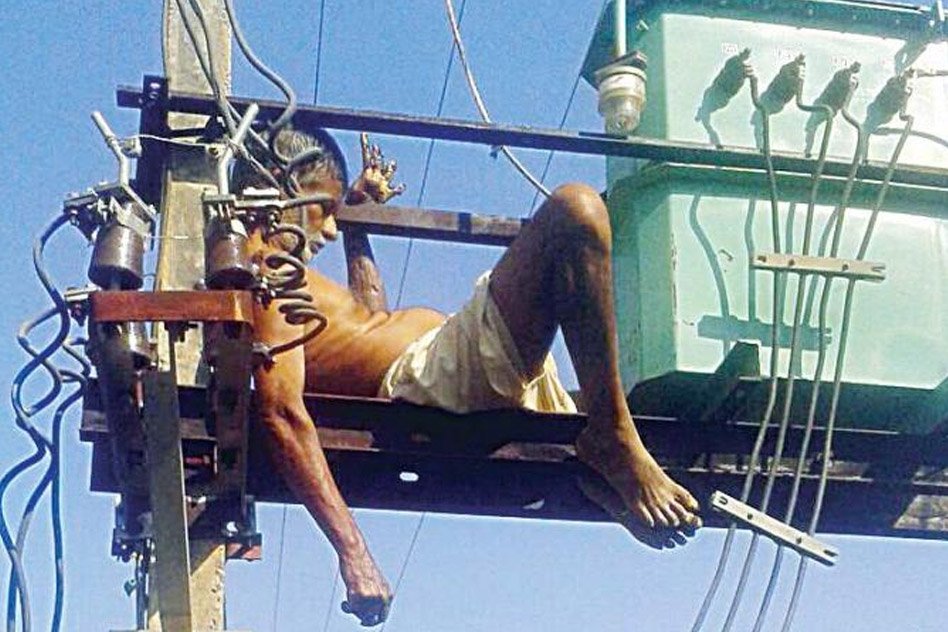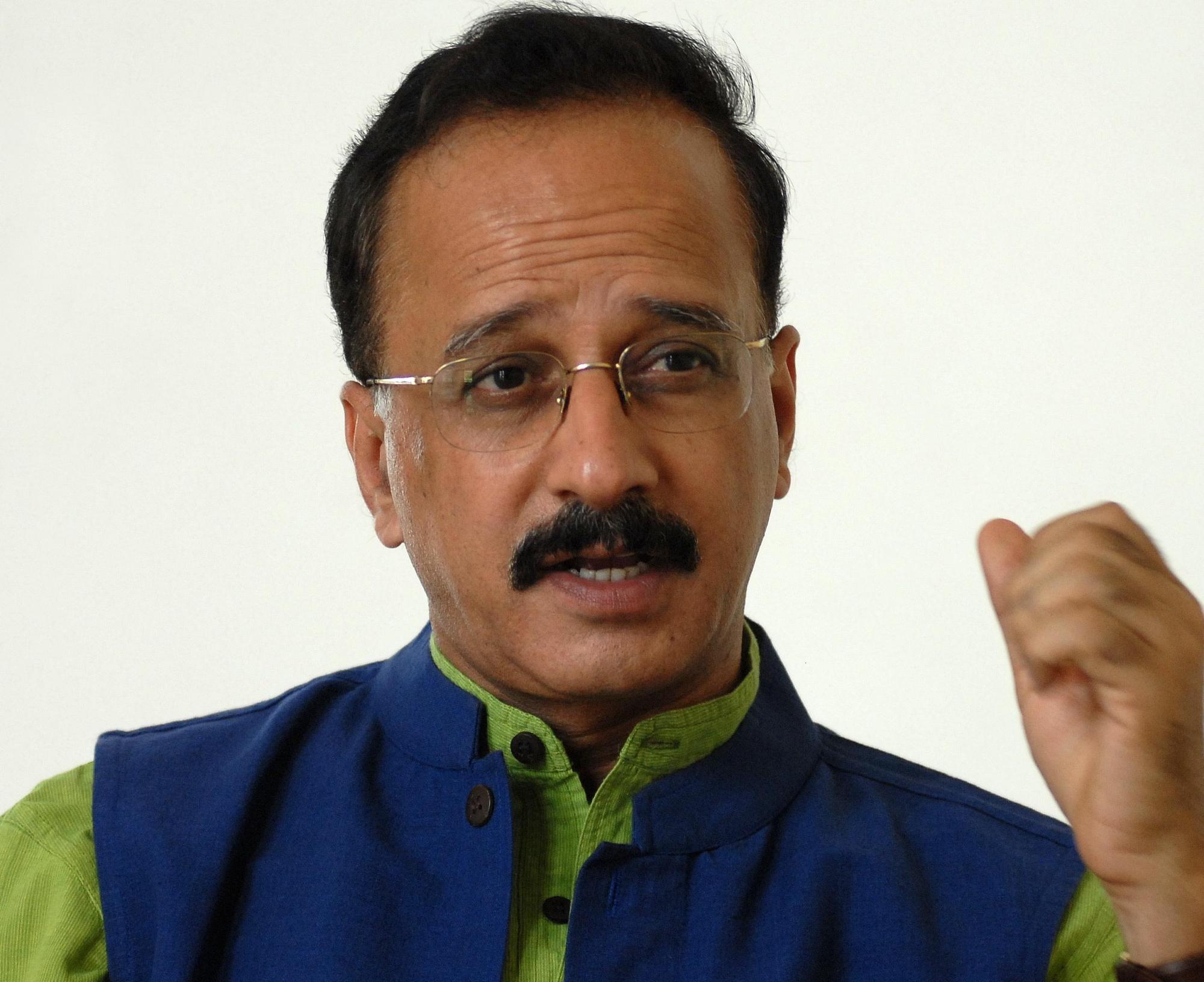
Karnataka: Defeated By Policy, This Farmer Climbed Up A Transformer To Kill Himself
6 March 2017 7:51 AM GMT
While the debate around doubling farmer’s income in the next five years has itself doubled in the past few weeks, there is no respite from the spate of farm suicides. Instead of waiting patiently for the next five years, farmers continue to take their own lives.
A 58-year-old farmer of Chikkamsihosur village in Haveri district in Karnataka climbed up a transformer on the outskirt of his village a few days back to get himself electrocuted. Depressed over the failure of his crop for two consecutive years he was constantly being harassed by moneylenders. He carried an outstanding debt of only Rs 3-lakh. In Punjab, in a span of two days, three farmers committed suicide in the Mansa region. Among them, was 45-year-old Gurjeet Singh, who owed Rs 2-lakh to banks and commission agents.
There is hardly a day when I don’t find news reports of farmers killing themselves in some part of the country. And that makes me wonder why these farmers don’t have faith and confidence on the Prime Minister Narendra Modi’s promise of doubling farmer’s income in the next five years. Not only the Prime Minister, even the Congress Vice-President Rahul Gandhi, Samajvadi Party leader Akhilesh Yadav, Punjab Chief Minister Prakash Singh Badal, Maharashtra chief Minister Devendra Fadnavis besides almost every other Chief Minister and party leaders have time and again assured farmers that the government will come to their rescue.
Not only at the time of every elections, farmers’ have also been eulogized by successive Finance Ministers while presenting the annual budgets. I recall the headline of newspapers highlighting the focus on kisan and rural economy the day after annual budgets were presented by Arun Jaitley, P.Chidambaram, Jaswant Singh, Yashwant Sinha and Pranab Mukherjee. The question therefore that needs to be asked is how come the farmers continue to kill themselves in such large numbers if the annual budgets as well as the electoral promises made at the time of elections were all favouring farmers? Does it not mean that even the Finance Ministers failed to make financial allocations in agriculture where it was actually needed? Since we cannot rectify the past budgetary allocations, isn’t it me for Finance Minister Arun Jaitley to take a fresh look at his budget proposals, to introspects and find out where he has been misled by the economists/advisors that he has been interacting with before finalizing the budget proposals?
More of the same is certainly not the answer. Not only the Finance Minister, I find even agricultural scientists all over the country are prescribing the same technological approaches to double farm income. I find what is now being prescribed as the way forward to double the farm incomes is the same that I have been hearing over the past 20 years, if not more. The Niti Ayog is leading the debate with the same faulty prescriptions – raise crop productivity, reduce cost of cultivation, expand irrigation and provide a national agricultural market. The National Bank for Agriculture and Rural Development (NABARD) is putting resources in the same seven areas which have earlier failed to prop up agriculture. Agricultural Universities are only digging out the forgotten package of practices that they had recommended and repackaging it as the way forward.
When I see what the Niti Ayog and NABARD are proposing, I realize why the farmers don’t have any confidence left on the government’s promise of doubling their income. What the Niti Ayog is proposing is primarily the need to make more public investments in agriculture. This is certainly welcome. More so at a time when the annual outlay for MNREGA is much higher than that for agriculture. But it is completely wrong to package it as the mechanism to double farmer’s income. After all, building swanky eight-lane highways, flyovers, super markets etc in the cities do not mean that the new urban infrastructure in any way compensates for employees salaries. Similarly, it is wrong to assume that providing more irrigation, technology and markets compensates for farmers income.
Let’s be very clear. The objective behind what the Niti Ayog/NABARD and agricultural universities proposes as the roadmap for increasing farmer’s income hinges on the dire need to raise crop productivity. Increasing crop productivity is being seen as the way to increase farm incomes. It is believed that the higher the crop productivity, higher will be the farm incomes. To my understanding this is a flawed hypothesis.
Take the case of Punjab, the country’s food bowl. Punjab has 98 per cent assured irrigation, the highest anywhere in the world. Even the United States is able to provide only 12 per cent assured irrigation to its farmers. Now let’s look at the crop productivity. At 4,500 Kgs per hectare, Punjab’s productivity of wheat is the highest in the world, including that of America. In case of paddy, Punjab’s productivity is 6,000 Kgs/hectare which matches the highest productivity of 6,700 Kgs per hectare recorded in China. With such high crop productivity of wheat and rice, and with 98 per cent of the cultivable lands being provided with assured irrigation, Punjab farmers should in the process be very prosperous.
The sad part is that despite the highest crop productivity and with the highest acreage under irrigation in the world, Punjab has turned into a hot sport for farmer suicides.
There is hardly a day when I don’t see reports of farmer suicides happening in Punjab. Does it not therefore mean that what is being proposed by the policy makers as the roadmap for doubling farmer’s income is terribly flawed? This is primarily because every disaster becomes a business opportunity. The prevailing agrarian crisis too has become a business opportunity for input providers – fertilizer, pesticides, seeds, and implement manufacturers – to make more money. Nothing wrong, but I expect policy makers to see beyond the economic interests of the companies dealing with agriculture inputs/implements.
This is perhaps the reason why those farmers who continue to commit suicide do not see much hope in the promise of doubling farmer’s income in the next five years. They simply couldn’t wait for the next five years.
You can read more about farmer-related issues on Devinder Sharma’s Blog
Also Read: Madhya Pradesh: For 2000 Kg Of Potatoes, Farmer Got Rs 1, And For 108 Sacks Rs -773
 All section
All section













